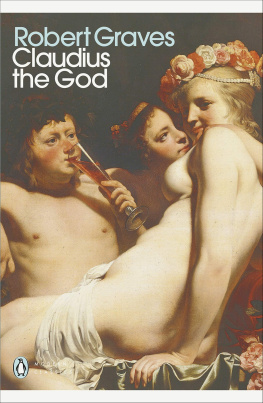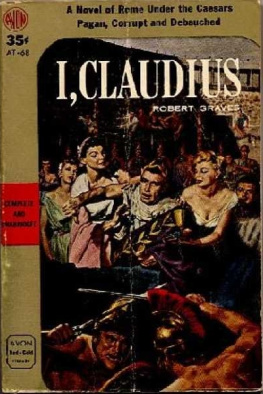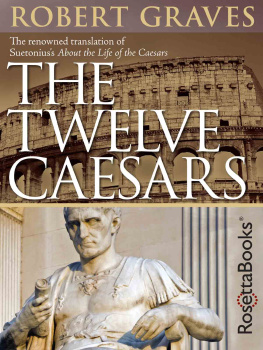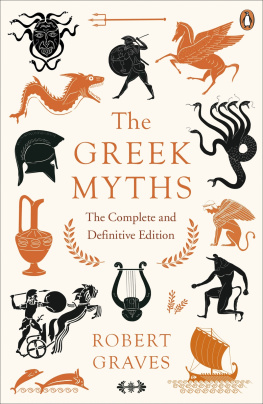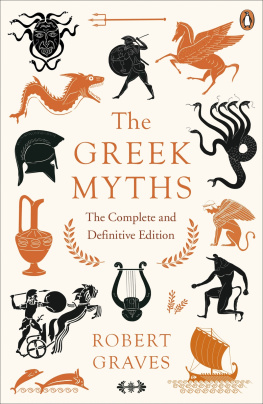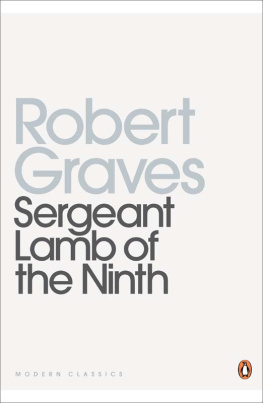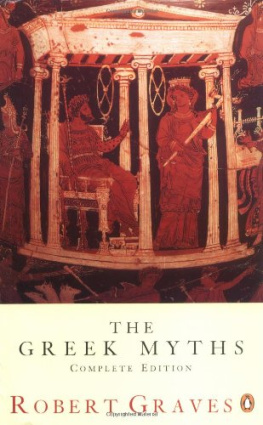Robert Graves - Claudius the God
Here you can read online Robert Graves - Claudius the God full text of the book (entire story) in english for free. Download pdf and epub, get meaning, cover and reviews about this ebook. year: 2006, publisher: Penguin, genre: Detective and thriller. Description of the work, (preface) as well as reviews are available. Best literature library LitArk.com created for fans of good reading and offers a wide selection of genres:
Romance novel
Science fiction
Adventure
Detective
Science
History
Home and family
Prose
Art
Politics
Computer
Non-fiction
Religion
Business
Children
Humor
Choose a favorite category and find really read worthwhile books. Enjoy immersion in the world of imagination, feel the emotions of the characters or learn something new for yourself, make an fascinating discovery.
- Book:Claudius the God
- Author:
- Publisher:Penguin
- Genre:
- Year:2006
- Rating:4 / 5
- Favourites:Add to favourites
- Your mark:
- 80
- 1
- 2
- 3
- 4
- 5
Claudius the God: summary, description and annotation
We offer to read an annotation, description, summary or preface (depends on what the author of the book "Claudius the God" wrote himself). If you haven't found the necessary information about the book — write in the comments, we will try to find it.
Claudius the God — read online for free the complete book (whole text) full work
Below is the text of the book, divided by pages. System saving the place of the last page read, allows you to conveniently read the book "Claudius the God" online for free, without having to search again every time where you left off. Put a bookmark, and you can go to the page where you finished reading at any time.
Font size:
Interval:
Bookmark:

and his wife Messalina
The troublesome reign of Tiberius Claudius
Caesar, Emperor of the Romans
(born 10 BC , died AD 54),
as described by himself;
also his murder at the hands of the
notorius Agrippina
(mother of the Emperor Nero)
and his subsequent deification,
as described by
others
with an Introduction by BARRY UNSWORTH
PENGUIN BOOKS

ROBERT GRAVES was born in 1895 in Wimbledon, son of Alfred Perceval Graves, the Irish writer, and Amalia Von Ranke. He went from school to the First World War, where he became a captain in the Royal Welch Fusiliers. Apart from a year as Professor of English Literature at Cairo University in 1926 he earned his living by writing, mostly historical novels which include: I, Claudius; Claudius the God; Sergeant Lamb of the Ninth; Count Belisarius; Wife to Mr Milton; Proceed; Sergeant Lamb; The Golden Fleece; They Hanged My Saintly Billy; and The Isles of Unwisdom. He wrote his autobiography, Goodbye to All That, in 1929 and it rapidly established itself as a modern classic. The Times Literary Supplement acclaimed it as one of the most candid self-portraits of a poet, warts and all, ever painted, as well as being of exceptional value as a war document. His two most discussed nonfiction books are The White Goddess, which presents a new view of the poetic impulse, and The Nazarine Gospel Restored (with Joshua Podro), a re-examination of primitive Christianity. He translated Apuleius, Lucan, and Suetonius for the Penguin Classics series, and compiled the first modern dictionary of Greek Mythology, The Greek Myths. His translation of The Rubiyt of Omar Khayym (with Omar Ali-Shah) is also published in Penguin. He was elected Professor of Poetry at Oxford in 1961, and made an Honorary Fellow of St Johns College, Oxford, in 1971. Robert Graves died on 7 December 1985 in Majorca, his home since 1929. On his death The Times wrote of him, He will be remembered for his achievements as a prose stylist, historical novelist and memorist, but above all as the great paradigm of the dedicated poet, the greatest love poet in English since Donne.
BARRY UNSWORTH is a Fellow of the Royal Society of Literature and holds an honorary doctorate from Manchester University. He is the author of 15 novels, among them Sacred Hunger, which won the 1992 Booker Prize. Pascalis Island (1980) and Morality Play (1995) were shortlisted for the same prize. His most recent novel, The Ruby in Her Navel is due for publication in 2006. He lives in Italy.
The success of Goodbye to All That, his memoirs of the First World War, enabled Robert Graves to quit the industrial civilization he so much detested for a simpler style of life. In the year the book was published, 1929, he and the American poet Laura Riding went to Majorca and the island became his permanent home. It was in his early years here that the Claudius books were written, appearing in 1934, when his reputation as a poet was already established. They were brought out by Penguin in 1943 and have enjoyed continuous success ever since.
How Graves came to fasten on Claudius as his narrator I have no means of knowing, whether it was after long deliberation or came as a shaft of light. But it is hard to imagine a better vehicle for recounting the first half-century of Imperial Rome a chronicler who lived at the very centre of its far from healthy heart.
Others lived there with him but none of them would have done. His grand-uncle Augustus, founder of the Empire, was too much concerned with promulgating his own glory and establishing the central authority of the State to give us more than propaganda; his cruel and gloomy uncle Tiberius was too secretive to make any kind of autobiographer; it could hardly have been his demented predecessor Caligula, who believed himself to be a god, or the posturing and perverted Nero who followed.
No, Claudius is the only one in all that company who we can believe in as a chronicler, the only one who would have been capable of the detachment and introspection needed. He was an outsider, always a good thing in a writer. Childhood illness left him with a permanent limp, he had a speech impediment that earned him general derision, he suffered from acute abdominal pains all his life. Cripple, stammerer, fool of the family, as he calls himself. He was in fact regarded as little better than an idiot by the imperial family, and left to his own devices. This was the saving of him, of course. In that world of murderous power struggles no one took him seriously as a rival, no one thought him worth killing. This enabled him to live to the advanced age of 51 before succeeding to the imperial purple, and it was his own character, timorous certainly, but quick-witted and surprisingly firm in emergencies, that enabled him to survive 13 years as emperor and so to become, in the words Graves gives him, the recorder of his own life and times.
He was otherwise qualified too. In his lonely and neglected childhood he took naturally to study, encouraged in this by the historian Livy, who was one of the few to recognize his talents. He became a historian in his own right, and one of astonishing industry he wrote 20 volumes of Etruscan and a further eight of Carthaginian history, all in Greek, plus an autobiography, a treatise on the Roman alphabet and an essay on dice-playing, to which it seems he was addicted. Not one syllable of all this has survived. All we have is a couple of letters and a speech in the Senate to the Conscript Fathers, urging them to extend Roman citizenship to provincials. (He was interrupted, even heckled, but bore it with patience.)
It is not enough for us to form any judgement of his merits as a historian or his qualities as a stylist. It is Graves that gives him a voice, and what a voice it is: garrulous, digressive, spiced with gossip and scandal, at the same time strangely dispassionate and sober. There is a range of tone here that enables Claudius, in his persona as professional historian, to deal with matters widely diverse, to be equally convincing whether talking about the waste and excess of military triumphs, the fate of Varus and his regiments in the forests of Germany, or the endless intriguing for power and influence among the members of the imperial family. To take one example among many of the capacity of Gravess style to encompass incongruous elements, often within a short space, there is the account of the assassination of Caligula in 41 AD and the immediate hailing of Claudius as his successor. We move from the brutal and bungled killing of the crazed Caligula, who firmly believes he is divine even while his limbs are being hacked off, to the violent confusion of the aftermath with the German bodyguards clamouring for vengeance on the killers, to the discovery of the terrified Claudius hiding behind a curtain, and his acclamation as the new emperor. The scrambled killing, the disordered movement as the Guards search out the conspirators, the grotesque comedy of the trembling Claudius borne aloft, represent together a sustained triumph of narrative.
Occasional vivid images spring through this chronicle of the crime and folly that accompanied the birth and early years of the Roman Empire. Athenodorus, who replaced the hated Cato as Claudiuss tutor, had the most marvellous beard. It spread in waves down to his waist and was as white as a swans wing, Claudius says. It is a comparison that does justice both to its amazing extent and to the purity of its whiteness. But he hastens to assure us that this is no mere idle figure of speech, that he is a serious historian, he means it literally. And he goes on to tell us that one day he actually saw Athenodorus feeding swans from a boat on an artificial lake in the Gardens of Sallust and was struck by the fact that his beard and their wings were of an identical colour. The relation of this occupies a few lines only, but the disclaimer is of first importance for the appreciation of the method that characterizes the whole. In all the annals of our western history there can be no period less in need of rhetoric or even metaphor. This was a time when a cruel and debauched ruling class, in whom hysteria and madness were never far below the surface and were often made manifest in acts of public outrage, sought and maintained power through systematic murder, a time when the demoralised and unruly masses had to be pacified by the distribution of free grain on an ever larger scale and entertained by shows and spectacles ever more bloody and ferocious. It is lurid enough, it needs little in the way of emphasis or descriptive flourishes.
Font size:
Interval:
Bookmark:
Similar books «Claudius the God»
Look at similar books to Claudius the God. We have selected literature similar in name and meaning in the hope of providing readers with more options to find new, interesting, not yet read works.
Discussion, reviews of the book Claudius the God and just readers' own opinions. Leave your comments, write what you think about the work, its meaning or the main characters. Specify what exactly you liked and what you didn't like, and why you think so.

